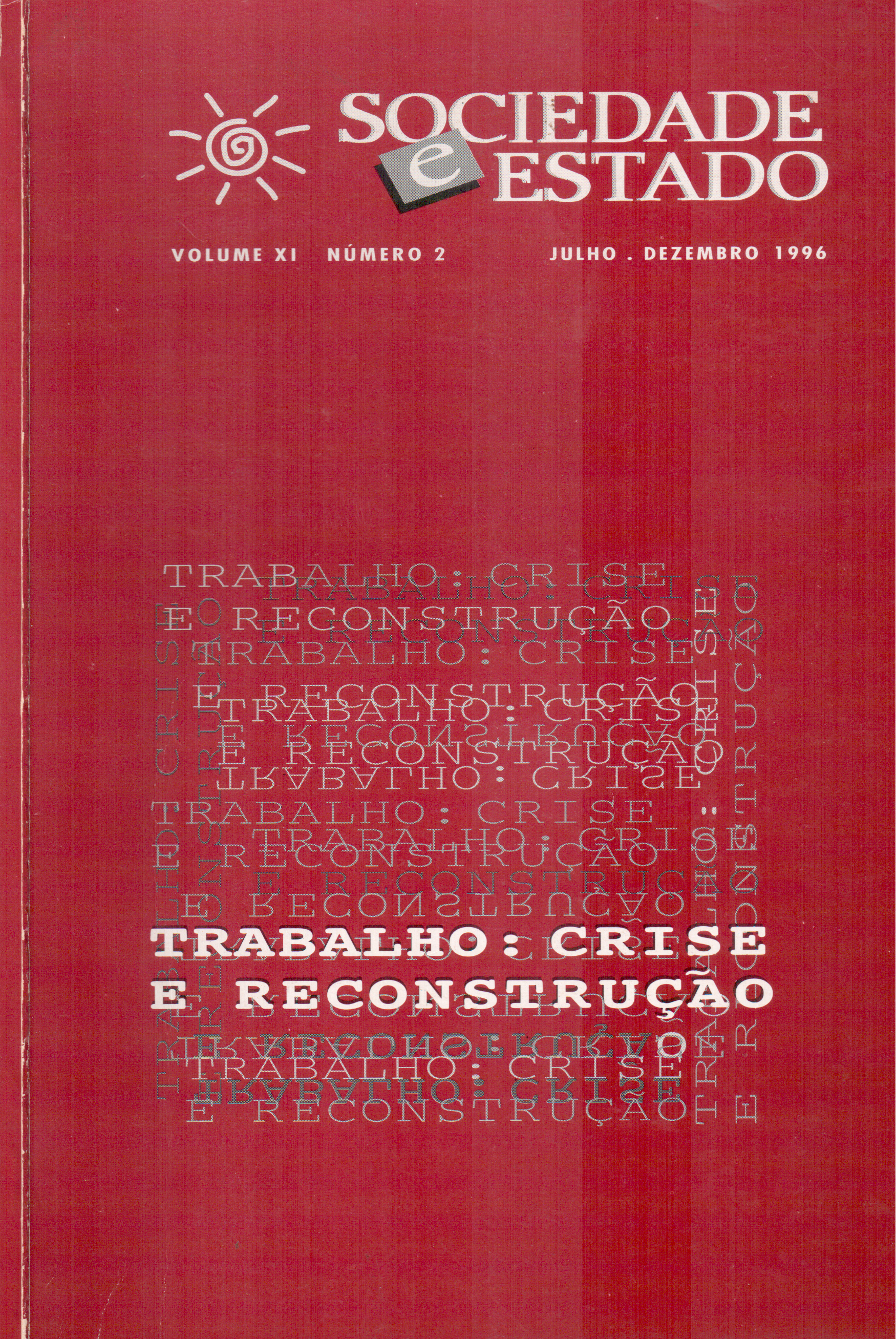A câmara proscrita ou o desperdício institucional do governo FHC
Keywords:
.Abstract
The aim of this article is to recover the birth process of the chamber of the automotive sector. The tensions among representatives of the State, Capital and Labor were equated in a new manner in 1991. The substitution of the logic of confrontation, which was a characteristic of the eighties, by “conflictive cooperation” could only be partial and temporary. Political resistances to tripartite concertation were reactivated under governmental sponsorship to the point of almost banishing the sectoral chamber as a permanent space of negociation.
References
Atkinson, M. e Coleman, W. (1985) “Corporatism and Industrial Policy”, in Alan Cawson (ed.), Organized Interests and the State,.Londres: Sage.
Bielschowsky, R. (1992) “Transnational Corporations and Manufacturing Sector in Brazil”. Santiago do Chile: Eclac-United Nations.
Cano, Wilson (1993) Reflexões sobre o Brasil e a Nova (Des)Ordem Internacional. Campinas: Unicamp.
Cawson, A. (1986) Corporatism and Political Theory. Londres: Brasil Black- well.
CUT, Tese de Doutoramento, Departamento de Sociologia da USP.
Diniz E. e Boschi R., (1991) “O Corporativismo na Construção do Espaço Público”, in R. Boschi (ed.), Corporativismo e Desigaldade —A Construção do Espaço Público no Brasil. Rio de Janeiro: Rio Fundo Editora.
Ferro, J. R. (1992) “A Produção Enxuta no Brasil”, in J. Womack, D. Roos. A Máquina que Mudou o Mundo. Rio de Janeiro: Campus.
Gamble, A. (1993) “The Decline of Corporatism”, in D. Crabtree e A. Thirl wall (eds.), Keynes and the Role of the State. Londres: Macmillian.
Isto E, (1991) “Em ponto morto”, março.
Jornal do Brasil (1991) “Câmara Setorial forma cartel”, 30.04.
Jornal do Brasil (1991) “Fim das Câmaras Setorias”, 01.09.
Lange, P. (1984) “Unions, Order, and Conflict in a Simple Dynamic Model of
Capitalism”, in J. Goldthorpe (ed.), Order and Conflict in Contemporay Capitalism. Oxford: Clarendon Press.
Lehmbruch, G. (1982) “Neo-corporatism in Comparative Perspective”, in G. Lehmbruch e P. Schmitter (eds.), Patterns of Corporatist Policy-Making. Londres: Sage.
Lucas, L.P.V. (1992) “A Política Industrial Brasileira, Avanços e Desafios", s. r.
Polanyi, K. (1980) A Grande Transformação. Rio de Janeiro: Editora Campus. Regini, M. (1984) “The Conditions for Political Exchange: How Concertation
Emerged and Collapsed in Italy and Great Britain”, in J. Goldthorpe (ed.), Order and Conflict in Contemporary Capitalism. Oxford: Clarendon Press, p. 137.
Rodrigues, I. J. (1993) Trabalhadores, Sindicalismo e Democracia', a Trajetória da CUT. Tese de Doutoramento, Departamento de Sociologia da Usp.
Schmitter, P. (1990) “Sectors in Modem Capitalism: Modes of Governance and Variations in Performance”, in R. Brunetta e C. Dell’Aringa (eds.), Labour Relations and Economic Performance. Londres: Macmillan.
Sola, L. (1993)“Estado, Reformas Estruturais e Democratização no Brasil”, in Revista USP, n.° 17, março-maio. São Paulo: CCS da USP.
Tavares, M. da C. e Fiori, J. L. (1993) (Des)Ajuste Global e Modernização Conservadora. São Paulo: Paz e Terra.
Vaz, C. (1994) comunicado no Seminário: Reestruturação Produtiva e Novos Padrões nas Negociações Capital-Trabalho, sobre as “Câmaras Setoriais e a Experiência do Setor Automobilístico”, in Cadernos de Pesquisa, n.° 1, junho. São Paulo: CEBRAP.
Downloads
Published
Issue
Section
License
Copyright (c) 2022 Revista Sociedade e Estado

This work is licensed under a Creative Commons Attribution-NonCommercial 4.0 International License.











